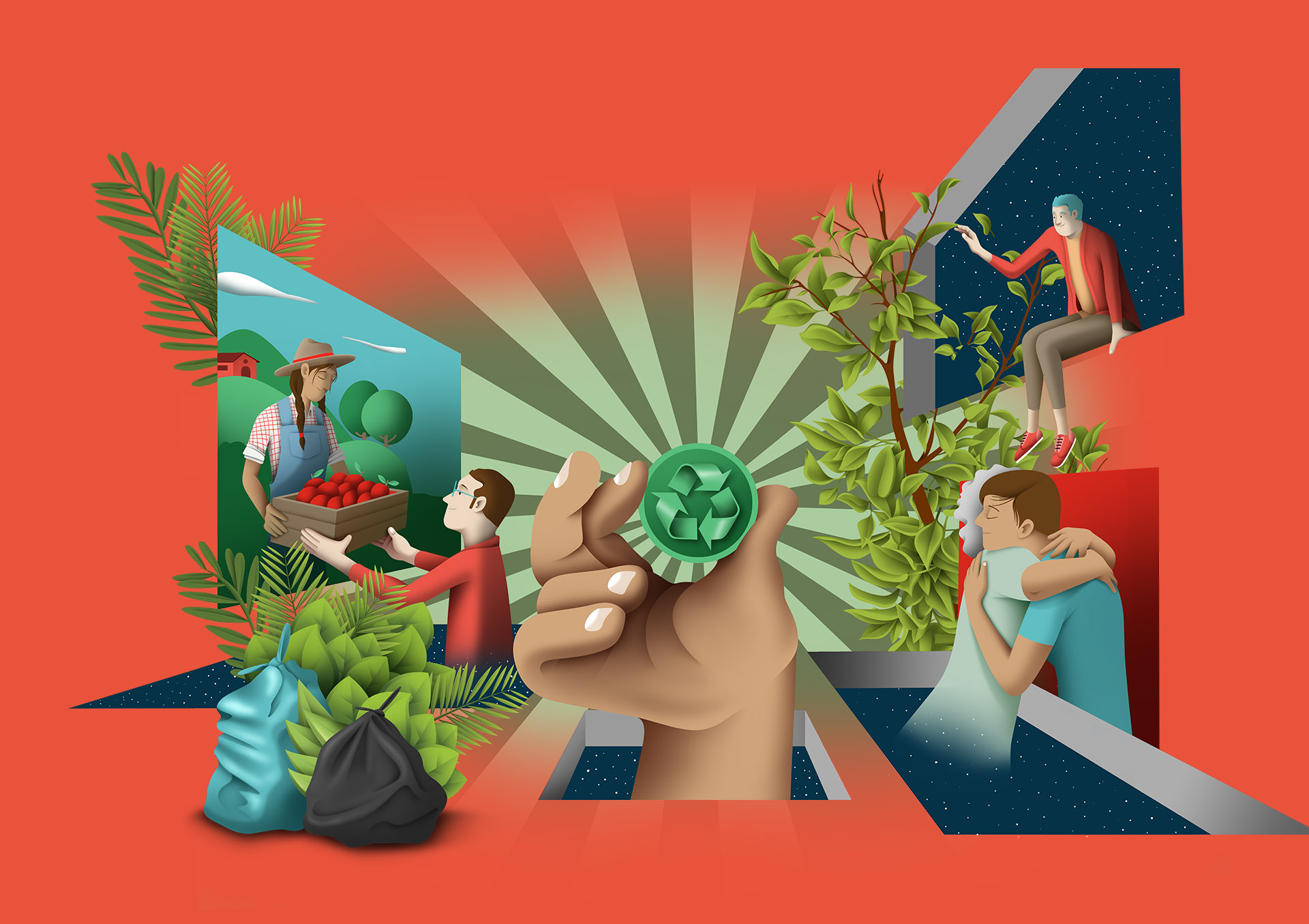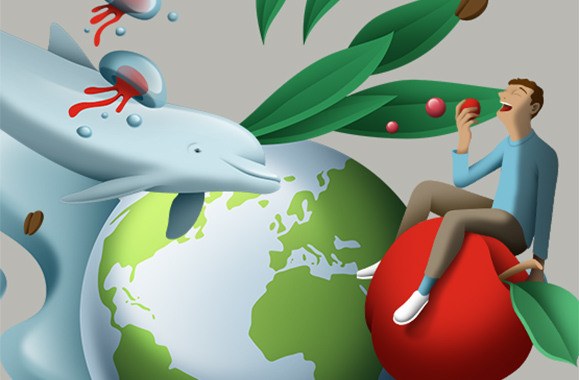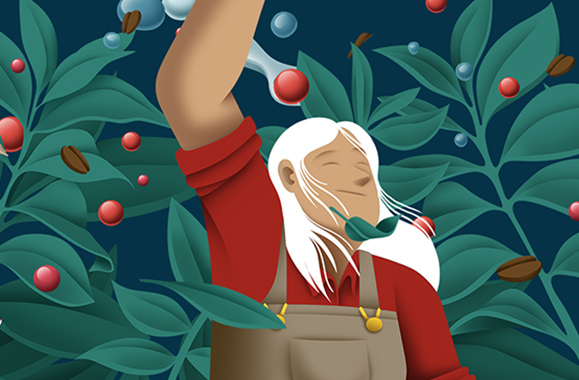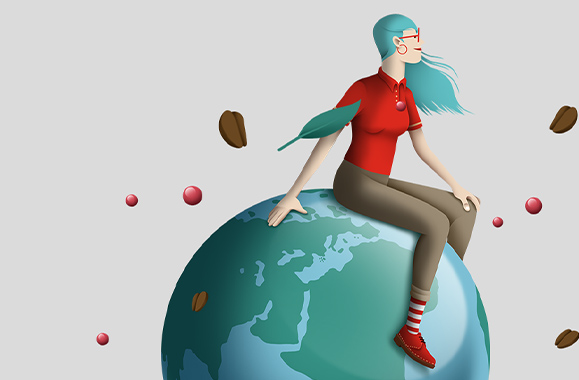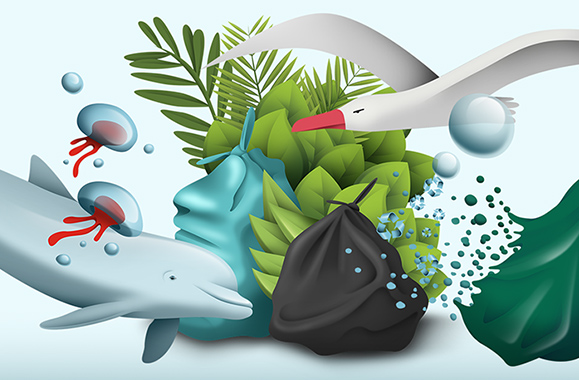Prosperity and Consumption
PDF DownloadOur attitudes toward wealth and consumption are changing. Will our consumption habits be the same tomorrow as they are today? What has to change? Opinions by Jule Bosch, Alexander Busse and Katharina Roehrig.
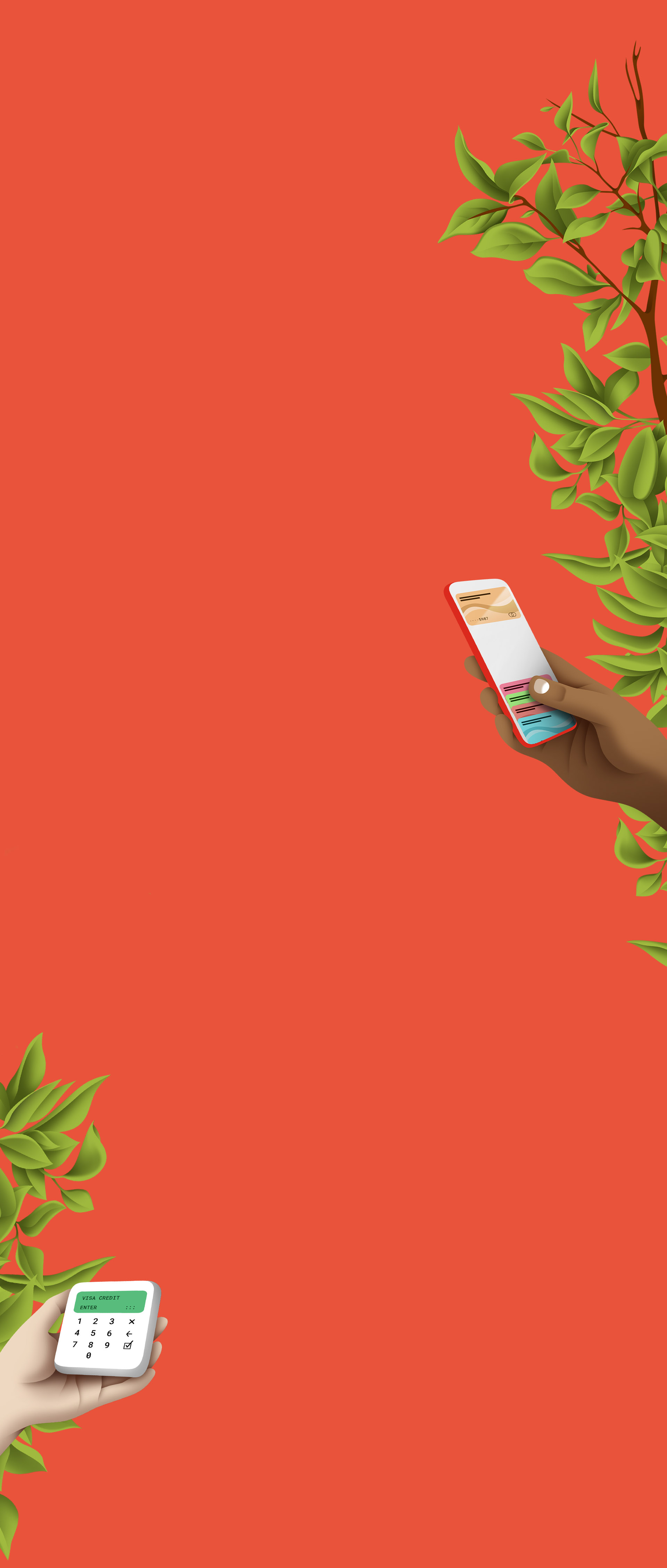

Jule Bosch When you talk about consumption, a lot of people immediately have a bad conscience. Consumption seems to trigger negative associations. I wonder if that actually makes sense. What do you think, is consumption always bad?
Katharina Roehrig No, I don’t think so. Consumption per se isn’t bad. But many people associate consumption with the idea that they either consume too much or shouldn’t be consuming at all. However, if you consume sensibly, it can also have positive effects. And one of these is that my demand can change the supply side. After all, I’m the one who decides: What to buy? How much to buy? How long to use a product? And by making these choices, we all – at least to some extent – also influence the future supply of these goods.
Alexander Busse For me, consumption is a question of balance. We all have to consume, otherwise we can’t survive. The problem is excessive consumption. I think we all sometimes make impulse purchases because we’ve had a bad day, because we’re tired, or because we simply feel a strong urge to have a certain product. It would be better if we consumed more consciously at all times.
Jule Bosch Conscious consumption is definitely important. At the same time, I think it’s a bit unrealistic to expect people to always weigh up all the different factors. And I think society in general feels consumers have more power to change things than they actually do. For example, a lot of information about the impact of products is simply not communicated by companies. And let’s not forget that many people have other things to worry about than this. What do you think? Would you say it’s realistic for us to always buy consciously and responsibly?
Alexander Busse No, definitely not. Otherwise, it would take us all day to do our supermarket shopping. We need our patterns, learned experiences, and unconscious actions to be efficient. But every now and then we should take the time to check our purchases against our beliefs.
Katharina Roehrig I think it would actually help a lot if we were more conscious about what we buy. For example, my rule is to only buy clothes, jewelry, or accessories after I’ve slept on the idea. If I still like the product the next day, I buy it. But quite often I realize that the urge to buy was only based on a sudden impulse or whim.
Jule Bosch Minimalism can be liberating and less stressful. There are studies that show, for example, that once you reach a certain income level, you can no longer increase your sense of happiness. Of course, you have to reach this point first.
Alexander Busse True. Every now and then, I feel the need to sort out my closet, for example. In the process, I notice how each T-shirt I get rid of gives me back a little bit of freedom.
Katharina Roehrig I think it’s important to find a healthy balance. Over the past decades, we’ve all raised our expectations more and more: long-distance travel has become normal, meat every day is a given, and we expect a full assortment at the bread counter until shortly before closing time. In my opinion, we need to work on our attitudes. Does everything really have to be like this? And why does our consumer behavior have to be so radically different to what it used to be?
Alexander Busse You’re right. But I don’t think it should lead to self-castigation. Conditions today are different than they used to be, and you can’t convince people to consume sustainably just by educating them or appealing to their better instincts. I guess 95 percent of all people know what they actually need to buy for a healthy diet, for example. But they still don’t do it – mainly out of habit and convenience.
Jule Bosch This is where companies need to step in. They shouldn’t be giving their customers the choice of either enjoying themselves today and facing the negative consequences in the future, or renouncing all fun and enjoyment in the here and now. We need offerings that are enjoyable and at the same time have a positive impact on our ecosystems – improving the soil and air, increasing biodiversity, and so on. Bjarke Ingels, a Danish architect, calls this “hedonistic sustainability” and says that sustainability shouldn’t be a burden, but a challenge to the creativity of companies – a “design challenge”.
Alexander Busse Exactly, ultimately it has to be fun! I firmly believe that, too. We don’t market our products based on their sustainability – or at least only to a small group of customers. Products sell because they’re good, because they captivate, because they emotionalize – and not because they’re the best choice for rational reasons. And that’s why I think companies actually have a big responsibility in this transformation.
Katharina Roehrig And of course they have greater leverage to ensure sustainable consumption. And that doesn’t just apply to product development. Sustainable consumption also includes the structuring of supply chains, the circular economy, the use of secondary raw materials, and much, much more. And above all, it’s about attitude. Because if the people responsible are fully committed to the idea of sustainability, a lot of things will naturally fall into place, and at a much faster pace.
Jule Bosch And these people are not so rare. I’m convinced there are “sleeper” activists in every company just waiting to make a difference. Companies should therefore put more trust in their employees – rather than simply imposing “top down” requirements.
Katharina Roehrig Absolutely! This is something we’re also observing and, of course, trying to take advantage of. We find it a little alarming that it takes schoolchildren to make society aware of the fact that we urgently need to implement change. That’s why we’re currently intensifying our dialog with Generation Z and setting up various communication formats.
Alexander Busse What’s important for me is that we involve the workforce – and where possible do this in a fun, emotional, and engaging way. Although we’re already doing quite a lot in this regard, we need to continue to think in this direction. For me, it’s the people who will bring about the transformation. And the more motivated and committed they are, the faster we can make progress.
Jule Bosch The company’s employees are the key to driving sustainability forward and thus turning the negative impact from the consumption of many into a positive one. From a strategic perspective, we also need something else to really achieve this. And that is not to regard sustainability and innovation as two different worlds, but as integral to each other.
Katharina Roehrig I really like the following image: in the beginning, you throw a stone into the water and you get a ring. The more allies who then also throw a stone into the water, the more interlocking rings there are. Younger employees in particular are often looking for meaningful tasks and find a lot of fulfillment in working on this topic.
Alexander Busse It would be great if sustainable consumption was no longer something that had to be thought about, developed, and strived for, but if consumption and sustainability were simply in harmony with each other. As a strong economic region, Germany or the EU should set an example here. Who, if not us?
Jule Bosch is a futurologist, company founder and non-fiction author. She has been accompanying innovation and strategy processes in companies for over 10 years. / Katharina Roehrig is Managing Director of Corporate Communications and Sustainability at the Melitta Group. / Alexander Busse is a project manager at Melitta Single Portions, where he is also responsible for sustainability.
